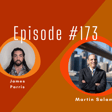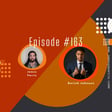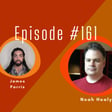
Harnessing Tech for Economic Transformation: Sani Abdul-Jabbar on AI Innovations, Blockchain, and the Future of Work
Can emerging technology truly transform traditional industries while creating new economic opportunities? This week's episode features Sani Abdul-Jabbar, the visionary founder of Vestec, who takes us on a fascinating journey from his humble beginnings in Pakistan to becoming a tech entrepreneur. Sani shares his remarkable story of identifying inefficiencies in sales operations, teaching himself to code, and leveraging his skills at major corporations like Toyota and Warner Brothers to streamline processes. His insights underscore the ever-changing landscape of technology, emphasizing the need for adaptability and continuous learning, especially within the realms of artificial intelligence, machine learning, and blockchain.
Curious about how AI will reshape the job market in the next decade? We'll walk you through the International Monetary Fund's predictions about job transformations and the emergence of roles like prompt engineering. Despite the clear competitive edge AI provides, many businesses hesitate to invest due to uncertainties and potential disruptions. By drawing parallels to historical shifts like the move from horses to cars, we discuss how industries evolve rather than disappear. Sani emphasizes the critical role of expert consultation in navigating these transformative changes and preparing for the future.
How can blockchain technology help track carbon footprints and create economic benefits? We'll explore a groundbreaking AI-powered platform designed to monitor the environmental impact of clothing items throughout their lifecycle. This innovation not only promotes sustainability but also introduces new economic opportunities, including the use of cryptocurrency for data contributions. Sani concludes by highlighting the invaluable role of mentors and ethical considerations in AI development, urging leaders to weave human values into technology. Tune in for an episode packed with insights on thriving in the fast-paced tech industry, the importance of mentorship, and the future of AI-driven transformations.
















